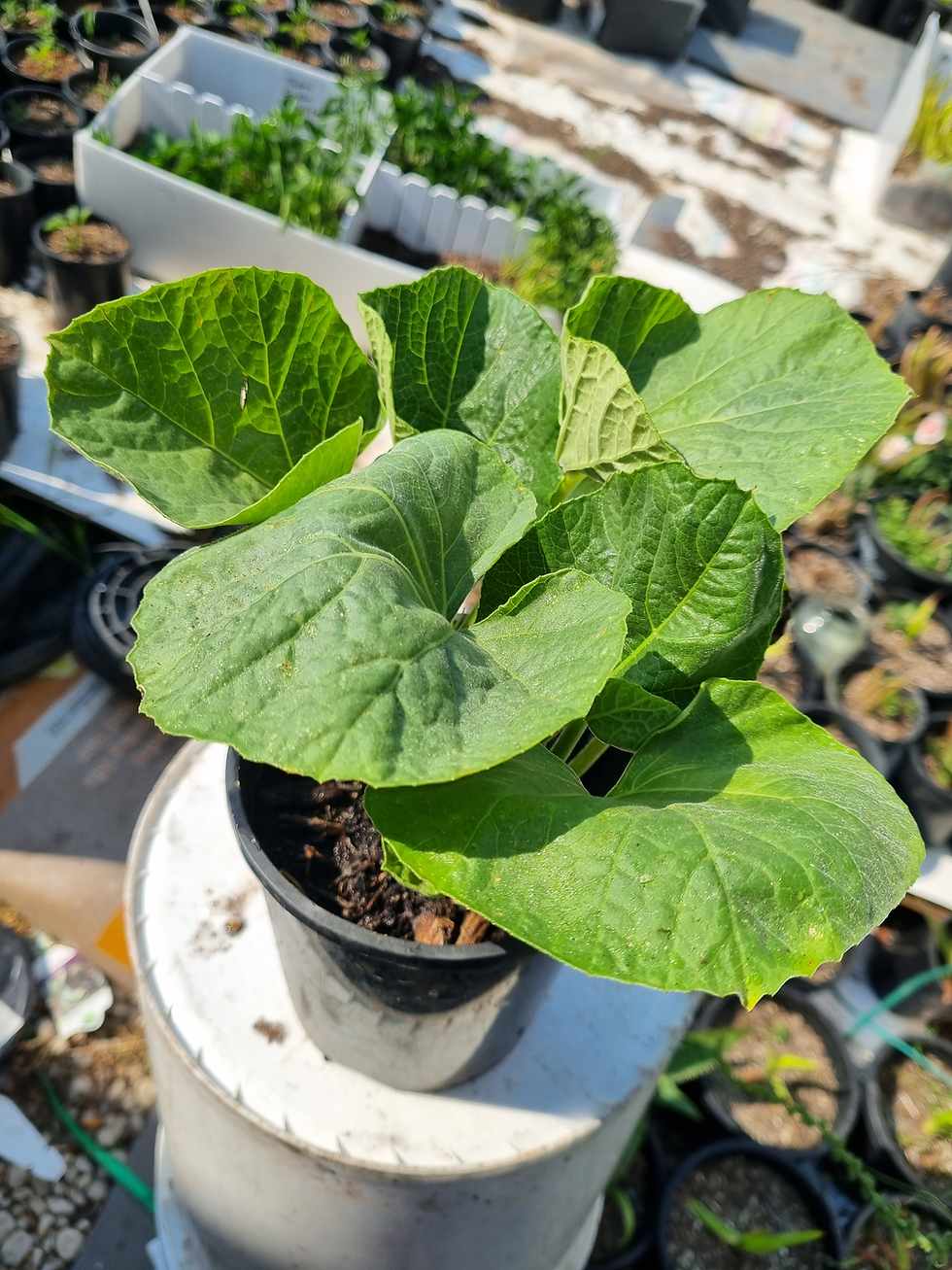In Stock
Price
$7 / pot
Order Place
157 Stonecutters Drive, Colebee, NSW-2761

Egg Plants
Egg Plants

Health Benefits of Eggs
1. High-Quality Protein Source
Eggs are an excellent source of high-quality protein, providing all nine essential amino acids necessary for the body's functions. This makes them a great option for muscle repair and growth.
2. Rich in Nutrients
Eggs contain a variety of essential vitamins and minerals, including:
Vitamin B12
Vitamin D
Choline
Selenium
Riboflavin
3. Eye Health
Eggs are rich in antioxidants such as lutein and zeaxanthin, which are beneficial for eye health. These compounds help reduce the risk of cataracts and age-related macular degeneration.
4. Heart Health
Despite past concerns about cholesterol, recent studies suggest that moderate egg consumption does not significantly impact heart disease risk for most people. Eggs can increase HDL (good) cholesterol levels.
5. Weight Management
Eggs are very filling and can help with weight management. Including eggs in meals can promote satiety and reduce overall calorie intake throughout the day.
6. Brain Health
The choline found in eggs is crucial for brain health, aiding in memory and cognitive function. It is particularly important for pregnant women for fetal brain development.
7. Versatile and Convenient
Eggs are easy to prepare and can be included in a variety of dishes, making them a convenient option for healthy eating.
Conclusion
Incorporating eggs into a balanced diet can provide numerous health benefits, making them a valuable food choice for many individuals.
Care and Maintenance of Eggplants
1. Planting
Location: Choose a sunny spot with at least 6-8 hours of sunlight daily.
Soil: Use well-draining, fertile soil with a pH of 5.5 to 7.0.
Spacing: Space plants about 18-24 inches apart to allow for growth.
2. Watering
Frequency: Water deeply once a week, increasing frequency during hot, dry spells.
Method: Water at the base of the plant to avoid wetting the leaves, which can lead to disease.
3. Fertilization
Type: Use a balanced fertilizer or one high in potassium and phosphorus.
Schedule: Fertilize every 4-6 weeks during the growing season.
4. Pruning
Purpose: Remove any dead or yellowing leaves to promote airflow and reduce disease risk.
Timing: Prune in early summer to encourage bushier growth and better fruit production.
5. Pest and Disease Management
Pests: Watch out for aphids, spider mites, and flea beetles. Use insecticidal soap or neem oil if necessary.
Diseases: Prevent fungal diseases by ensuring good air circulation and avoiding overhead watering.
6. Harvesting
Timing: Harvest when the fruits are firm and glossy, usually 2-3 months after planting.
Method: Use a sharp knife or pruners to cut the fruit, leaving a small stem attached.
7. End of Season Care
Cleanup: Remove all plant debris from the garden to prevent overwintering pests and diseases.
Soil Care: Consider planting a cover crop or adding compost to improve soil health for the next season.
Conclusion
With proper care and maintenance, eggplants can thrive and produce a bountiful harvest. Regular attention to watering, fertilization, and pest management will ensure healthy plants and delicious fruits.
Health Benefits of Eggs
1. High-Quality Protein Source
Eggs are an excellent source of high-quality protein, providing all nine essential amino acids necessary for the body's functions. This makes them a great option for muscle repair and growth.
2. Rich in Nutrients
Eggs contain a variety of essential vitamins and minerals, including:
Vitamin B12
Vitamin D
Choline
Selenium
Riboflavin
3. Eye Health
Eggs are rich in antioxidants such as lutein and zeaxanthin, which are beneficial for eye health. These compounds help reduce the risk of cataracts and age-related macular degeneration.
4. Heart Health
Despite past concerns about cholesterol, recent studies suggest that moderate egg consumption does not significantly impact heart disease risk for most people. Eggs can increase HDL (good) cholesterol levels.
5. Weight Management
Eggs are very filling and can help with weight management. Including eggs in meals can promote satiety and reduce overall calorie intake throughout the day.
6. Brain Health
The choline found in eggs is crucial for brain health, aiding in memory and cognitive function. It is particularly important for pregnant women for fetal brain development.
7. Versatile and Convenient
Eggs are easy to prepare and can be included in a variety of dishes, making them a convenient option for healthy eating.
Conclusion
Incorporating eggs into a balanced diet can provide numerous health benefits, making them a valuable food choice for many individuals.
Care and Maintenance of Eggplants
1. Planting
Location: Choose a sunny spot with at least 6-8 hours of sunlight daily.
Soil: Use well-draining, fertile soil with a pH of 5.5 to 7.0.
Spacing: Space plants about 18-24 inches apart to allow for growth.
2. Watering
Frequency: Water deeply once a week, increasing frequency during hot, dry spells.
Method: Water at the base of the plant to avoid wetting the leaves, which can lead to disease.
3. Fertilization
Type: Use a balanced fertilizer or one high in potassium and phosphorus.
Schedule: Fertilize every 4-6 weeks during the growing season.
4. Pruning
Purpose: Remove any dead or yellowing leaves to promote airflow and reduce disease risk.
Timing: Prune in early summer to encourage bushier growth and better fruit production.
5. Pest and Disease Management
Pests: Watch out for aphids, spider mites, and flea beetles. Use insecticidal soap or neem oil if necessary.
Diseases: Prevent fungal diseases by ensuring good air circulation and avoiding overhead watering.
6. Harvesting
Timing: Harvest when the fruits are firm and glossy, usually 2-3 months after planting.
Method: Use a sharp knife or pruners to cut the fruit, leaving a small stem attached.
7. End of Season Care
Cleanup: Remove all plant debris from the garden to prevent overwintering pests and diseases.
Soil Care: Consider planting a cover crop or adding compost to improve soil health for the next season.
Conclusion
With proper care and maintenance, eggplants can thrive and produce a bountiful harvest. Regular attention to watering, fertilization, and pest management will ensure healthy plants and delicious fruits.





